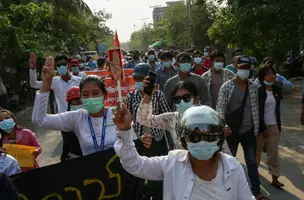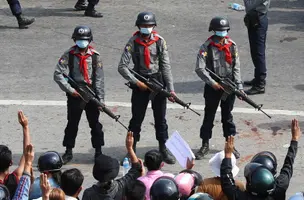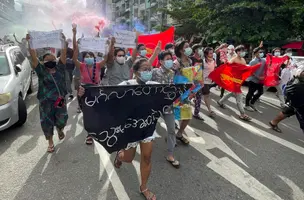
Home
Publications
Publications
Showing 0 to 0 of 0 results

Statements
2023-09-06T17:53:08
ASEAN’s ‘review and decision’ on Five Point Consensus falls short of what is needed to resolve Myanmar crisis, Southeast Asian MPs say

Reports
2022-11-02T17:51:46
The International Parliamentary Inquiry publishes its report urging the global community to support democracy in Myanmar

Open Letters
2022-04-24T01:00:00
Open Letter on the anniversary of the Five Point Consensus on Myanmar to ASEAN and Dialogue Partners

Statements
2022-01-25T16:49:47
APHR responds to Cambodia statement, urges focus on Myanmar crisis
TOP
ASEAN Parliamentarians for Human Rights (APHR) was founded in June 2013 with the objective of promoting democracy and human rights across Southeast Asia. Our founding members include many of the region's most progressive Members of Parliament (MPs), with a proven track record of human rights advocacy work.
Copyright © 2024-2025 All Rights Reserved - ASEAN Parliamentarians for Human Rights (APHR)
Website by Bordermedia